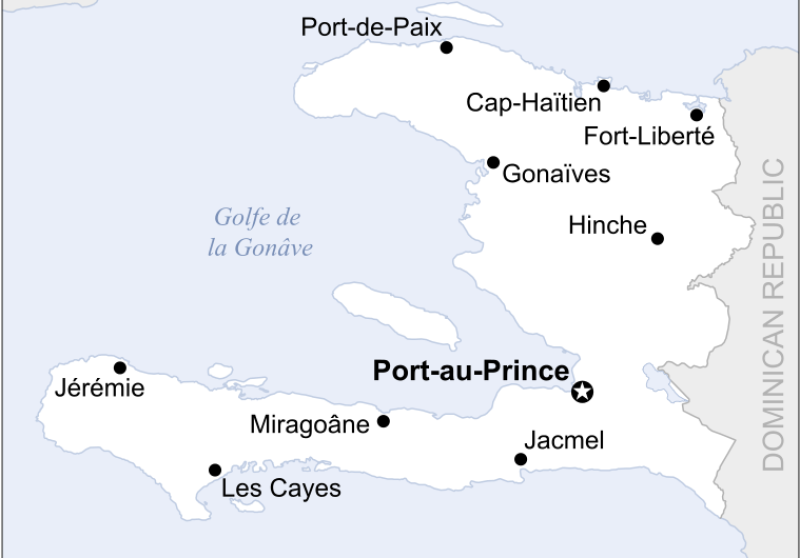
Americans who remain in Haiti have been issued a stern warning by the U.S. State Department, which said that they should "depart Haiti now" amidst the fuel shortage crisis that has grown violent. Widespread fuel shortages across the country has sparked violence in the Caribbean nation, where recently 17 missionaries, 16 of which were American, were taken hostage by a local gang that demanded $17 million in exchange for the hostages.
"The Department of State urges U.S. citizens to make plans to depart Haiti now via commercial means," the state department said in a statement released on Wednesday. "U.S. citizens should carefully consider the risks of traveling to or remaining in Haiti in light of the current security situation and infrastructure challenges."
The government warned that the fuel shortages may affect essential services in emergency cases, including "access to banks, money transfers, urgent medical care, internet and telecommunications, and public and private transportation options." They also said that in the event that commercial options become unavailable, the U.S. government will not be able to assist American citizens who find themselves stranded in Haiti.
According to the Christian Post, a student coordinator with Evangelical Theological Seminary of Port-au-Prince in Haiti was traveling hom through Croix-des-Bouquets with his family on Saturday when they were attacked by gunmen. Pastor Stanis Stifinson, the student coordinator, said one of his children perished in the attack, while he and his older son sustained gunshot wounds.
The seminary wrote in a statement on Monday after the attack, "We have interceded before God for the country that is plunging into unprecedented instability, for the victims of atrocities that Haitian families know, and especially for the family of the Step Student Affairs Coordinator."
The attacks on civilians, missionaries, and Christian preachers is not new in Haiti. In fact, the attack on Stifinson and his family came just weeks after the 400 Mawozo gang captured 16 American missionaries and a Canadian and their local driver, all of whom were working with the U.S.-based Christian Aid Ministries. The gang is seeking $17 million in ransom money. The U.S. pledged to ensure the safe return of the kidnapped victims.
Meanwhile, the United Nations has advised its staff in Haiti to "stock at least 14 days of emergency supplies of water, food and necessities" because of the "prevailing security and fuel situation," U.N. spokesperson for the political office in Port-au-Prince Daniel Dickinson told the Miami Herald.
Since June this year, the gas shortage-fueled violence caused at least 19,000 people in Port-au-Prince to be displaced and thousands of school children to stop school. Haitians call the current crisis the worst to hit the country since the 1990s. Kesner Pharel, a leading Haitian economist, called the situation "scary."
"No economic growth plus high inflation equals unemployment, extreme poverty and misery, and now add insecurity," Pharel explained. "That can create great pressure on people to leave the country."





















